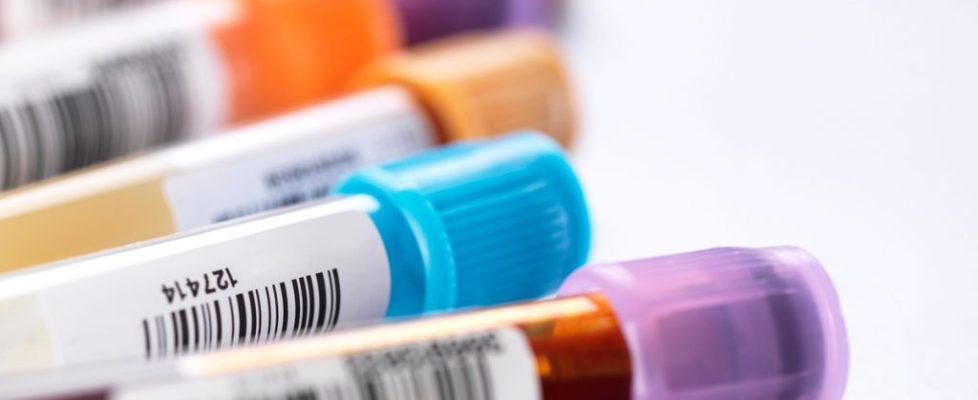How Tracking Biomarkers Can Help You Reduce Brain Fog
Reduce Brain Fog
Brain fog is a cognitive symptom characterized by difficulties with focus, memory, and mental clarity. It can manifest as a feeling of mental sluggishness, impacting daily productivity and overall cognitive functioning. Brain fog can serve as an indicator of an underlying illness, a result of hormonal changes, or even a long-run side effect of a past ailment, so it is important to measure biomarkers to differentiate between causes. In recent times, brain fog has been a common symptom for individuals who contracted COVID-19, with 32% of patients experiencing brain fog months after sickness.1
Brain Fog Can Occur Due to Multiple Factors
Brain fog is a symptom of a plethora of conditions, lifestyle choices, and medications. Causes can range from chronic stress to chronic illnesses such as fibromyalgia. Hormonal imbalances and side effects from medications that impact cognitive function, such as antidepressants, are other common sources of brain fog. Additionally, chronic illnesses often cite brain fog as a symptom, with conditions like fibromyalgia and chronic fatigue syndrome impairing mental clarity.

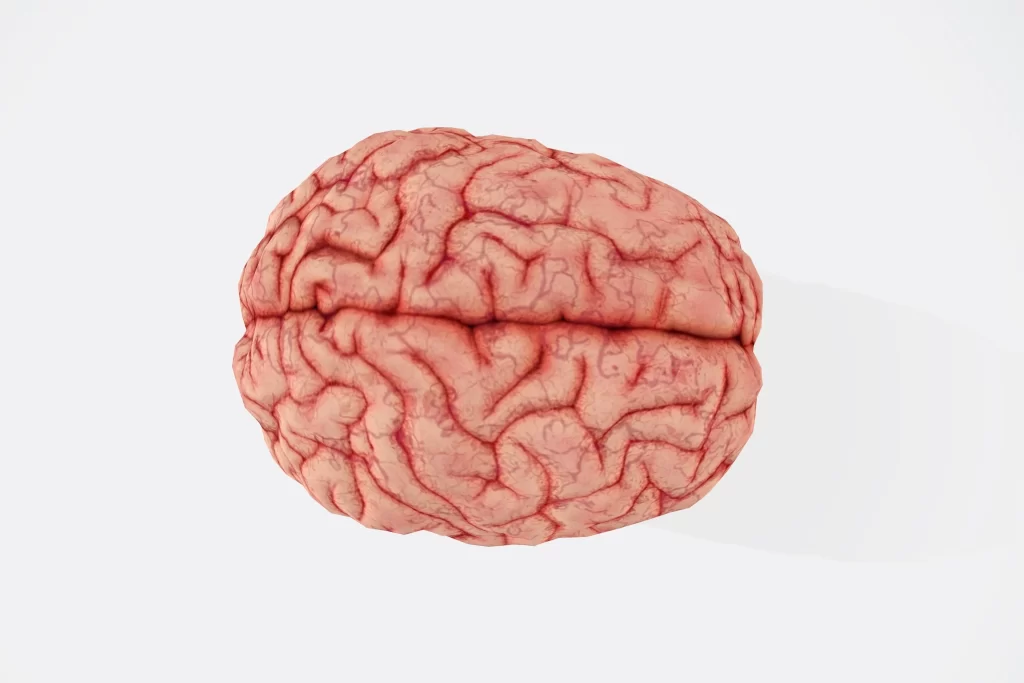
What is the link between Covid-19 and brain-fog?
One of COVID-19’s most common long-term symptoms is brain fog, often experienced months after the initial infection and regardless of the severity of the case. This phenomenon occurs due to the body’s inflammatory and immune response to the virus, resulting in inflammation of the central nervous system and the creation of antibodies that mistakenly target healthy brain tissue. In addition, the virus and its vascular damage inhibit blood flow to the brain, culminating in problems with memory and cognitive function.
Brain Fog May Sound Vague, but It Can Have Debilitating Effects
Brain fog can significantly impact daily activities. It can result in reduced productivity, difficulties with concentration and problem-solving, and challenges in maintaining optimal cognitive functioning. Brain fog can make it harder to complete tasks, impact decision-making abilities, and hinder overall cognitive performance. It may also lead to feelings of frustration, fatigue, and decreased motivation.

Which biomarkers are closely connected to brain fog?
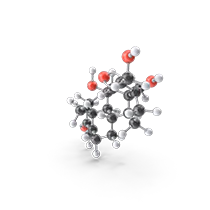
If your cortisol levels—along with serotonin—are out of balance, you may find yourself emotional and sluggish. This imbalance can also cause trouble sleeping and can affect mental clarity. Lack of sleep can also lead to increased cortisol levels, causing a vicious cycle.

TSH, released by the pituitary gland, stimulates the thyroid gland to produce thyroid hormones (T4 and T3) that regulate brain cell metabolism. Abnormal TSH levels, like high TSH in hypothyroidism or low TSH in hyperthyroidism, can disrupt thyroid hormone balance. Hypothyroidism, with low thyroid hormone levels, is linked to cognitive impairments and brain fog due to inadequate thyroid hormone supply to the brain.

High-sensitivity C-reactive protein (hsCRP) is a biomarker of systemic inflammation in the body. Inflammation can affect various organs, including the brain, and has been associated with cognitive dysfunction and brain fog. Elevated levels of hsCRP indicate increased inflammation, which may contribute to the development or exacerbation of brain fog symptoms.
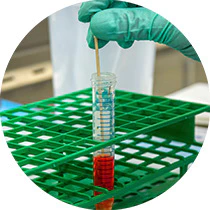
Hormonal Imbalance
Changes in sex hormone levels can also contribute to brain fog. In individuals with low testosterone levels, brain fog may occur due to its impact on cognitive function. Similarly, imbalances in estradiol levels can also affect cognitive function. In women, fluctuations in estradiol during the menstrual cycle or during menopause have been associated with cognitive changes, including brain fog.
HERE’S THE DEAL
Why choose Dr. Miltie, Powered by SiPhox?
The lowest cost per biomarker testing, at-home sample collection,
interactive reports, and actionable insights.
At-Home Testing
No more driving to clinics. No more waiting in lines. The sample collection kit lets you collect your sample using only a few drops of blood.
Extremely Affordable
Blood testing is expensive. But it shouldn’t be. Meet Dr. Miltie, the lowest-cost per-biomarker test on the market.
Measure Progress
Users tell us that regular testing is key to reaching their goals. Whether you want to lose weight or have more energy—we have your back!
Actionable Insights
Personalized insights sets you up for success. Paired with your favorite wearables, our system creates insights to improve each biomarker.
COMPREHENSIVE TEST KIT
17 Included Biomarkers
Our at-home test kit contains the biomarkers you need to provide you with the best overall snapshot of your health.
Base
Cardiovascular Health
Hormonal & Nutritional Balance
Hormone+
Inflammation
Metabolic Fitness
TG:HDL Ratio
Vitamin D
Triglycerides
Total Cholesterol
TC:HDL Ratio
Testosterone:Cortisol ♂
Testosterone ♂
LDL
Insulin
Homocysteine
HDL
hs-CRP
ApoB:ApoA1
Cortisol
DHEA-S ♂
Estradiol ♀
Ferritin
TSH
FSH ♀
HbA1c
ApoB
ApoA1
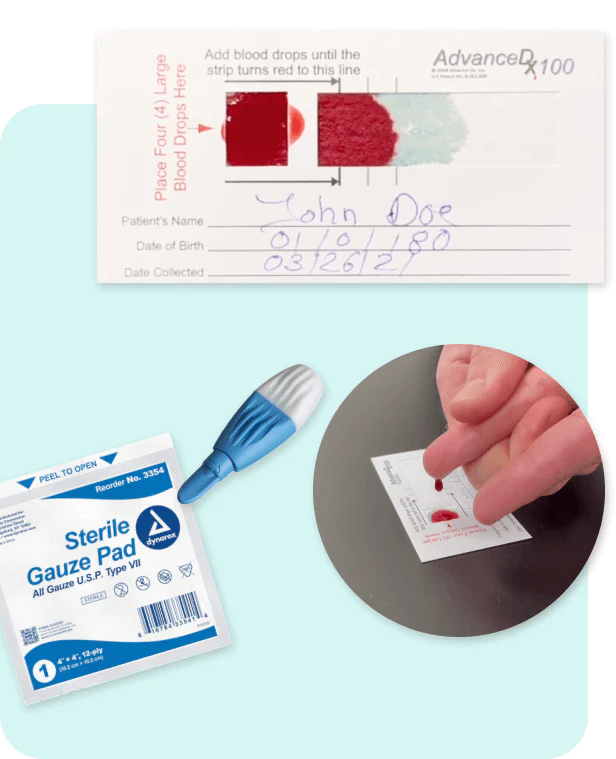
A FEW DROPS OF BLOOD
Is a few drops of blood really enough?
That’s right! A few drops of blood is all we need to test 17 biomarkers. Sounds too good to be true? Far from it…
Our sample collection card, the ADX1001, is an alternative collection method, similar to an SST tube. Red blood cells are separated without a centrifuge, enabling the laboratory to perform tests on dry blood.
Are results accurate? Yes! We process samples in a 3rd party CLIA-certified lab. The test results have been cross-validated against standard finger prick and venous draws.
SELF SAMPLE-COLLECTION
Can I really collect my own sample?
Each kit contains a sample collection card, three adjustable lancets, band-aids, sterile gauze, an alcohol pad, and instructions.
Drawing your blood sounds scary at first. Especially if it’s your first time doing it. We’ve taken the time to make the instructions as easy to follow as possible.
Not only that, every customer can schedule a live one-on-one session with our certified phlebotomist for FREE (a person trained in collecting blood samples).
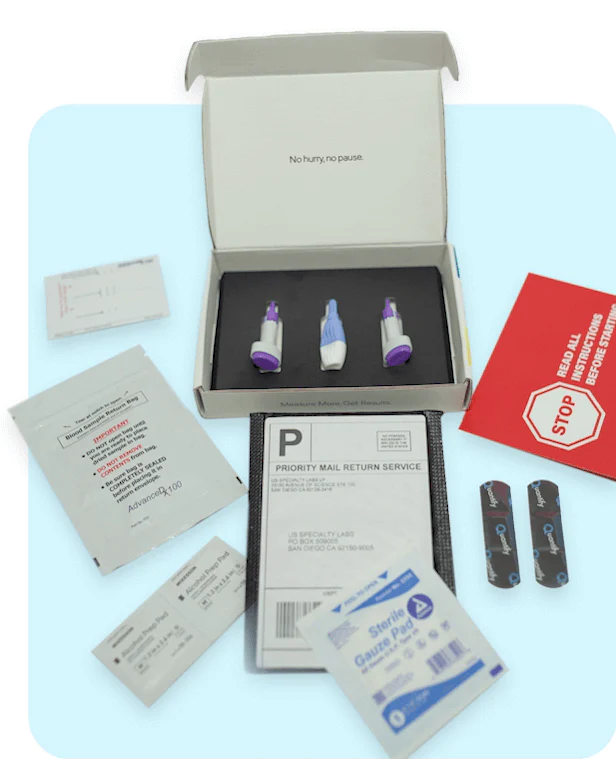
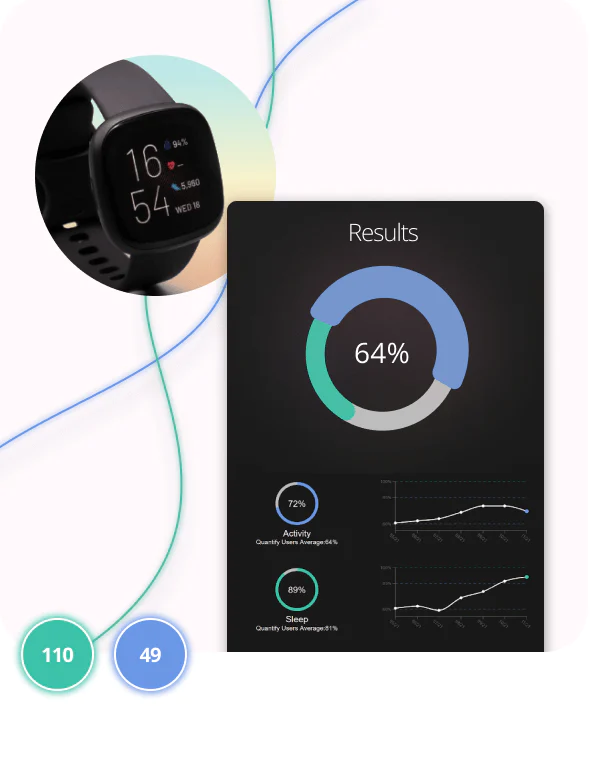
PERSONALIZED REPORTS
Ok, my results are in. What now?
This is the best part! After processing your sample, we create a complete report for each of your 17 biomarkers.
You can then access your reports from your personal reports dashboard. Each report comes with an easy-to-understand graph and personalized insights you can use to improve each biomarker.
The dashboard lets you connect your favorite wearables to make your reports even more insightful. Improved sleep and activity scores are highly correlated with improved hormonal balance and lower inflammation in our user base.
CORRELATE YOUR DATA
Include Your Wearable



Frequently Asked Questions
If your question is not found below, feel free to email us your question at: support@DrMiltie.com
Is the SiPhox Health blood test kit equivalent to standard labs?
How are you able to offer the lowest cost per biomarker in the industry?
Which biomarkers are being tested?
Why should I use a wearable with SiPhox Health?
What wearable devices are compatible with SiPhox Health?
How do I view my test results?
What makes SiPhox Health Reports unique?
Can I give my kit away as a gift?
I’m having trouble collecting enough blood for the test, what can I do?
I think I messed up my collection card. What do I do?
What is the Hormone+ Panel?

